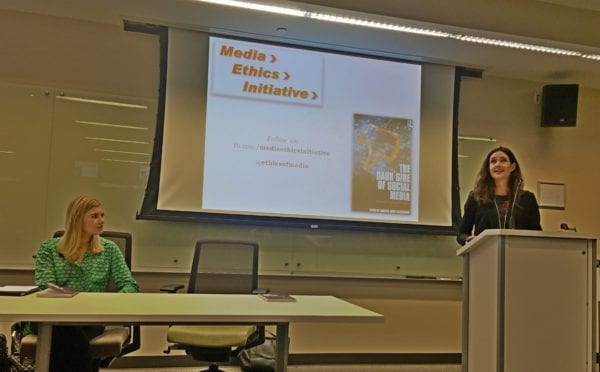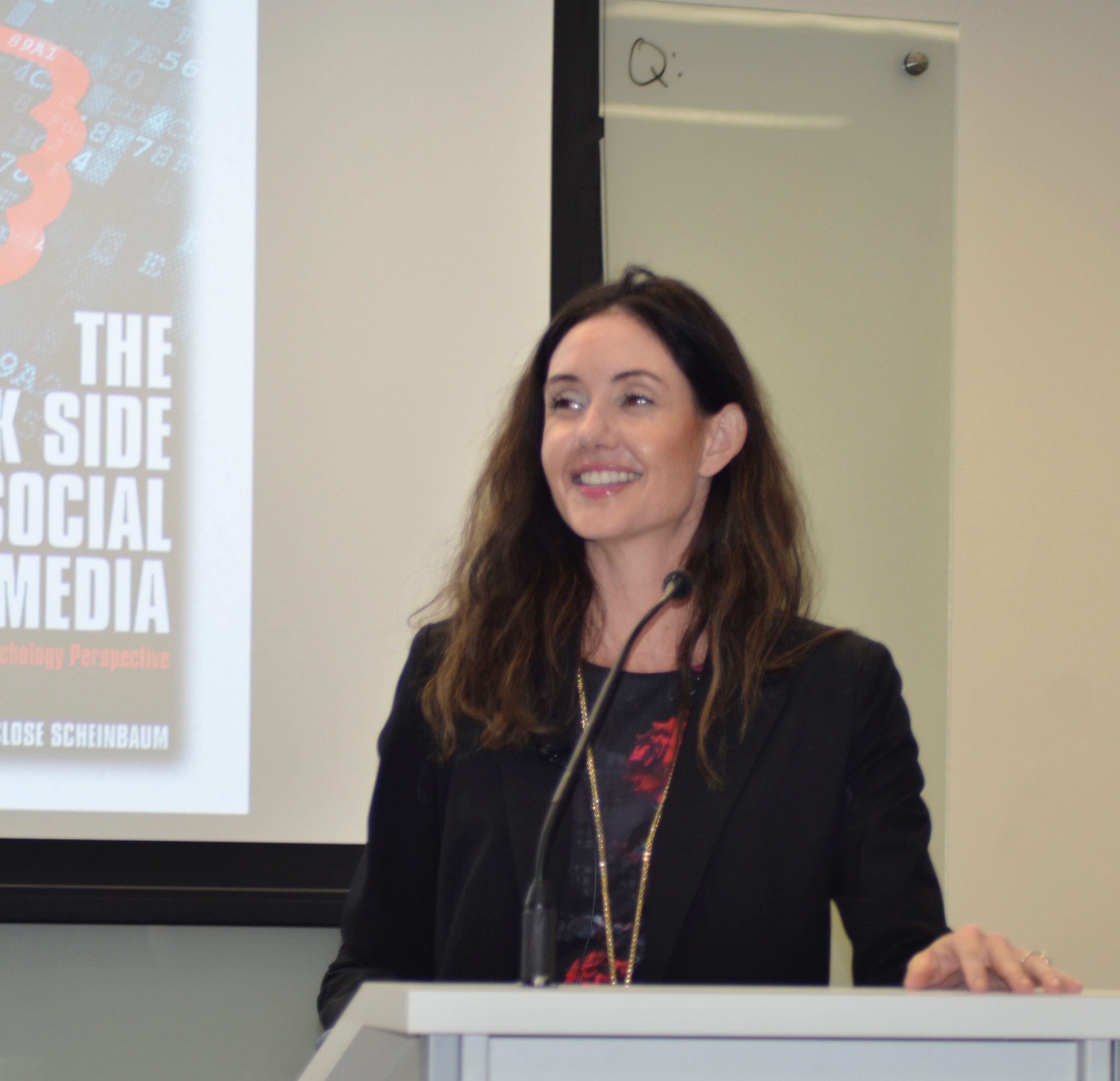
By Angela Whiteley / Photos: Kyla Canavan
AUSTIN, Texas- The Media Ethics Initiative hosted a speaker panel featuring professor Angeline Close on Monday, November 6, at the Belo Center for New Media. Close discussed her new book, “The Dark Side of Social Media,” which explores the misuses and consequences of online social platforms.

Close began the conversation by explaining that the use of social media has many unintended consequences, which she calls digital drama, defined as “the occurrence of and reactions to negative online consumer behavior.”
“Social media has transcended the way that we think,” said Close. “It’s tainted our perception of reality.”Other members of the panel included Allye Doorey from The Richards Group, Jonathan Henson, a doctoral student in the Department of Communication Studies, and Scott R. Stroud, the founding director of the Media Ethics Initiative.
Henson and Stroud discussed revenge pornography as an example of the digital drama Close writes about in her book.
Revenge porn involves the exchange of sexually explicit images between two individuals in a relations
hip. The images are then uploaded to the internet often by one of the parties after the relationship has ended without consent. The result is an irreversible invasion of privacy and the publication of sensitive material.
“There are over 3,000 websites that host this activity,” Henson said. “They’re set up like social media sites, where they post these pictures and then ask for identifying characteristics.”
The issues surrounding revenge porn include its increasing frequency, as well as existing legislation established to address it. Stroud explained that these laws are insufficient and do not speak to the complete scope of the problem.
“Part of the challenge to law is keeping up with technology,” said Stroud. The circumstantial dimensions of consent and intent make this topic “a complex online phenomenon.”
Stroud described how these elements vary on a case by case basis, which complicates the creation of law. Not every case of revenge porn is entirely nonconsensual and the uploader’s intent is not always to cause harm.
To combat the rise of revenge porn and other unintended consequences of digital drama, the panel advised the audience to build awareness by continuing the conversation regarding media ethics and responsible online behavior.
“As a communication major, I’m more aware of the downsides of social media than most people,” said Kyla Canavan, a third year public relations student who attended the event. “I feel like those of us with this awareness have a duty to teach others about the importance of maintaining an ethical online presence.”



